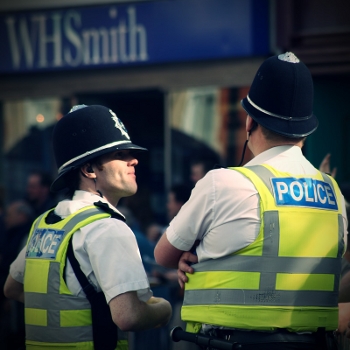 Commentators are describing the current controversies as the biggest crisis at Scotland Yard for decades. They are probably right. Two senior officers have already paid the price. Others look vulnerable and this crisis has some way to run yet. Tim Newburn argues that there is an absence of a clear and coherent system of police accountability, and that police governance is in urgent need of reform.
Commentators are describing the current controversies as the biggest crisis at Scotland Yard for decades. They are probably right. Two senior officers have already paid the price. Others look vulnerable and this crisis has some way to run yet. Tim Newburn argues that there is an absence of a clear and coherent system of police accountability, and that police governance is in urgent need of reform.
In 2003 Rebekah Wade (now Brooks), at that time the editor of The Sun, told the House of Commons Media and Culture Select Committee that the newspaper had in the past paid police officers for information. Predictably, what was in effect an admission that a corrupt relationship existed between police officers and journalists caused considerable controversy. At the time, however, much of the concern focused on the journalists rather than the police service. Scroll forward eight years and not only is the story finally getting close to coming to the boil, but the Metropolitan Police are right at the centre of it.

In short, the current accusations are that Scotland Yard has failed to investigate phone-hacking by journalists with sufficient rigour, that it has consequently failed to tackle the alleged corruption within its own ranks, and that, more broadly, the relationship between the Met and News International, at best, falls short of the ethical standards that would ordinarily be expected of the police service.
The consequences are already dramatic. The Commissioner, Sir Paul Stephenson, and one of his senior management team, Assistant Commissioner John Yates, have both announced their intention to resign. Last week, the Met’s Director of Public Affairs, Dick Fedorcio, gave a halting performance in front of the Home Affairs Select Committee and his position hardly looks secure. Lower down the organisation the consequences are as yet unclear. John Yates in his evidence to the same committee said he was certain that a small number of police officers would be prosecuted for corruption, found guilty and jailed as a result of the inquiries now taking place. Certainly criminal charges seem a distinct possibility. How extensive they will be we wait to see.
What are the parallels for what is currently happening at the Yard? Certainly the Stephen Lawrence Inquiry in 1999 was enormously damaging to the reputation of the Met, and led to significant internal changes to the organisation. More recently the shooting of Jean Charles de Menezes at Stockwell tube station in the aftermath of the 2005 bombings in the capital led to very public criticism and to calls for the resignations of senior officers. Arguably, however, we have to go back to the early 1970s to find a corruption scandal engulfing the Met with anything like the newsworthiness of the current crisis. Then, over the course of a decade, beginning with a series of exposés by the Sunday Times, including recordings of senior detectives planning criminal activities, the Met made the headlines for all the wrong reasons. The Home Secretary responded by appointing an outsider, and an arch-reformer, Sir Robert Mark, as Commissioner with the task of cleaning out the stables. His succeeded in many ways but by the time he left office in 1977 it was clear that despite the resignation of hundreds of officers there was still a significant problem at the Yard.
One of the things that the history of police corruption tells us is that the major police organizations around the world are subject to regular cycles of scandal and reform. Problems emerge, eventually they are seen to be serious enough to warrant action, and then a programme of reform begins. Over time, however, other pressures and demands come to take precedence, the determination to tackle corruption lessens or the focus shifts and, sooner or later, major problems re-emerge. Reform also founders because all too often it is assumed that corruption is a problem of a few malign individuals. In a speech at the LSE in 1999, the then Commissioner of the Met, Sir John Stevens recognised the danger of such assumptions. Reflecting on previous attempts to tackle corruption he said:
We now realise that while we did deal with the ‘rotten apples’, the approach did not destroy the tree from which they had been picked. This meant that a new batch of rotten apples could grow in another season. It was decided that a change in approach was necessary, and a secret unit was created in order to produce a strategic intelligence picture of corruption in the Met.
And yet, here we are, little more than a decade later, confronted by scandals on several fronts. First and foremost, there are the allegations that journalists regularly paid officers for information – ‘in cash, kind or the promise of future jobs’ as the Home Affairs Select Committee put it. Second, there is the broader problem that there appears to have been very considerable social interaction between senior officers and News International – not only was the company the subject of an ongoing criminal investigation but the socialising seems to have involved officers that were involved in that investigation. Then there is the ethically dubious (to put it kindly) movement of staff between the Met and NI: most obviously the hiring of Andy Hayman, a former Assistant Commissioner involved in the phone-hacking investigation, as a columnist for News International, and more recently the Met’s decision to take on Neil Wallis, former deputy editor of the News of the World, as an advisor to their public affairs department.
The current furore over phone-hacking has set a number of inquiries in train – Lord Justice Leveson’s, two select committees, the Independent Police Complaints Commission, the Inspectorate of Constabulary, and Elizabeth Filkin’s inquiry into relationships between the Met and the media, among others. These will deal with many of the issues raised – including the selling of information by officers, the complex relationship between the Metropolitan Police and various media organizations, and broader matters of contractual relationships between the police and other bodies. What they won’t affect is the bigger question which lies behind all this: how should the police best be governed and held to account?
The resignation of both the most senior police officer in the country and the head of counter-terrorism should have alerted government to that the fact that there was a problem with policing that went far wider than the issue of an inadequate investigation into phone hacking. For too long now there has been a refusal to face up to the fact that our system of police governance is in urgent need of root and branch review. Although this is particularly true in London where the current mayor has managed to preside over the resignation of two Metropolitan Police Commissioners in under three years, the absence of a clear and coherent system of police accountability is a problem everywhere.
Until recently, successive governments have been happy to leave such matters largely undisturbed because under the existing system they have been able to mould and shape policing nationally and locally without ever finding themselves properly held to account for this in parliament (the system simply doesn’t make it possible). The police service themselves have generally kept quiet, fearing that any changes would inevitably reduce the freedom to maneouvre they still retain. It is true that the coalition government has plans for change in the pipeline – the Police Reform and Social Responsibility Bill introduces the idea of directly elected Police and Crime Commissioners – but there is little evidence that the consequences of any of these reforms have been carefully thought-through.
The crucial thing now is to attempt to learn the lessons of previous corruption scandals. Any plans for reform that come out of this must have long-term ambition and not be just a short-term fix. To do this they also need to be broad in their focus – and in my view that means taking a long, hard look at how police forces are to be fully and transparently governed. Consequently, if all that happens as a result of the current scandal is the prosecution and sacking of a few corrupt officers and the construction of some new ethical guidelines for police-press relations, a major opportunity to reform our system of policing will have been lost.
Please read our comments policy before posting.





